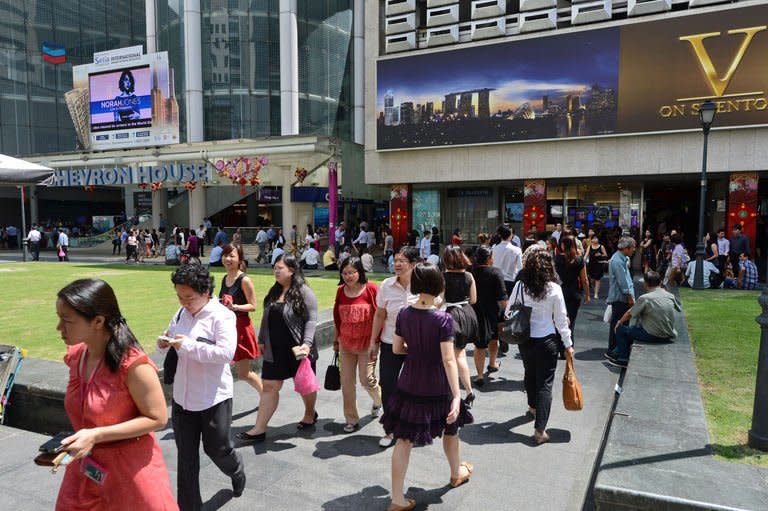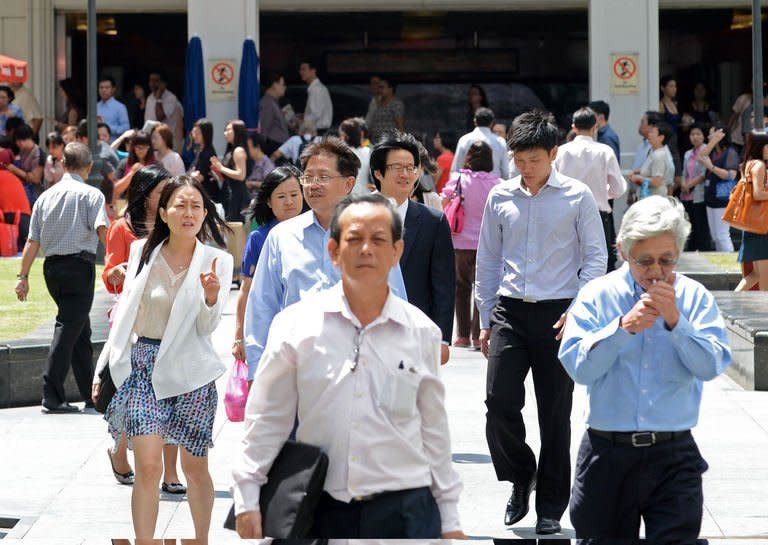Singapore population to be half-foreign by 2030: govt
Foreigners could make up nearly half of Singapore's population by 2030, the government said Tuesday as it unveiled its politically sensitive projection for a city of up to seven million boosted by young immigrants. In a white (policy) paper on population, the government said Singaporeans' flagging birth rates -- which have been below replacement levels for more than three decades -- necessitated immigration into the prosperous Southeast Asian nation. The paper, released by the National Population and Talent Division, said the total population could range between 6.5 and 6.9 million by 2030. Foreigners would make up nearly half the population by then, with the proportion of Singaporean citizens projected to fall to 55 percent, from 62 percent as of June 2012 when the population was 5.31 million. The projection sparked furious online reactions from citizens, with some saying it was time to emigrate. "This white paper from the government is a betrayal to local born Singaporean(s)," posted Mc Lee on the website of the Straits Times. "It's hard to call a place home when you got no space & getting out & about is a constant death match," stated keenlen on Twitter. "I guess migration plans for Singaporeans should begin soon. Singapore is slowly losing its nationality," Shane Goh tweeted. Singapore's total fertility rate (TFR) of 1.20 children per woman last year is far below the 2.1 needed to sustain the native population, and has been so for more than three decades. "We do not expect our TFR to improve to the replacement rate of 2.1 in the short term," the paper said. "Taking in younger immigrants will help us top up the smaller cohorts of younger Singaporeans, and balance the ageing of our citizen population," it added. "To stop our citizen population from shrinking, we will take in between 15,000 and 25,000 new citizens each year," it stated, adding that the immigration rate would be reviewed "from time to time". Immigration has been a politically sensitive issue for the government, which has in recent years widened the door for foreigners to sustain the economy. But their numbers were reduced following a social backlash, with foreigners blamed for problems including overcrowding, straining public services and driving up housing costs. The study said the government would take steps such as expanding transport networks and building more public housing to support the increase in population. Singapore this month also announced increased cash bonuses for parents of newborn babies and introduced paternity leave as part of a package of measures to boost the local population.



